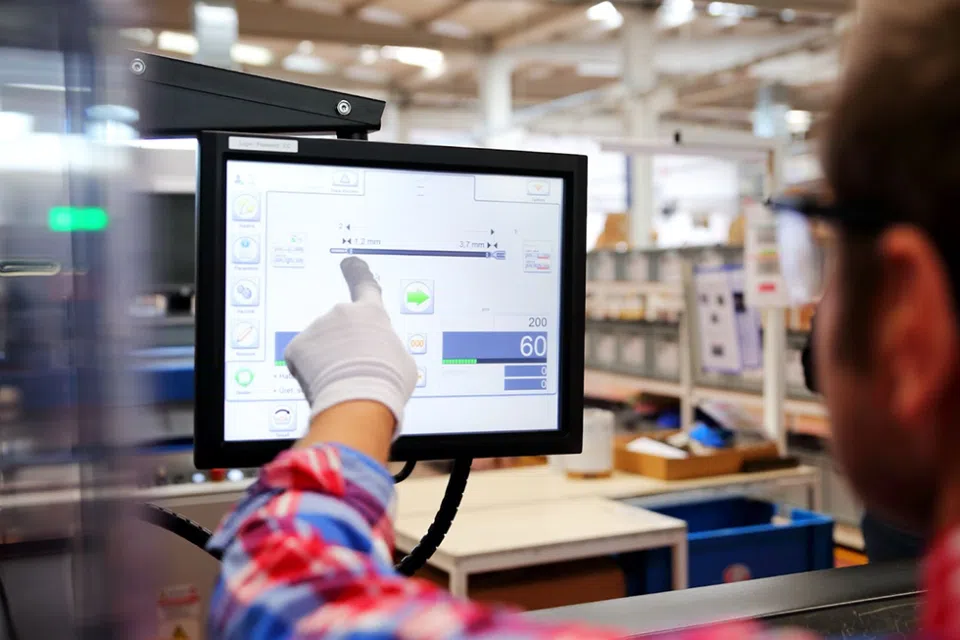Smart manufacturing: Smart manufacturing provides the pharmaceutical industry with a host of benefits that help streamline production processes and increase efficiency. By incorporating advanced technologies such as machine learning, artificial intelligence, and data analytics, companies can optimize their supply chain, reduce waste, and minimize downtime. This results in higher quality products, improved safety, and reduced costs. Moreover, smart manufacturing enables pharmaceutical companies to keep pace with changing regulatory requirements and respond to market demands quickly, which is essential in a highly competitive industry.
How Can Manufacturers Employ It?
- By maintaining a cloud-based database for data collection, analysis, interpretation, and application.
- Combining 5G with industrial IoT to ensure that production-related insights can be remotely accessed anytime, anywhere, by operators, managers & business owners.
The Benefits Of The Smart Manufacturing Process In The Pharmaceutical Industry
- Smart Engineering:
One of the biggest advantages of Industry 4.0 is that it improves the quality of product design, quality control, and the supply chain. Blockchain-based smart contracts, intelligent automation, and data science come together to build upstream & downstream connected ecosystems for developing smart products, keeping the future in mind.
- Operational Excellence:
Digital technologies (like ML, AI, IIoT, etc.) are employed to automate and streamline each step in production, from load balancing to inline quality inspection and scheduling processes to performance management, testing, etc. It eliminates the possibility of errors and the time constraints associated with manual labor. Smart sensors constantly monitor the manufacturing process, run background checks, and troubleshoot errors to ensure that the machine is properly maintained and the conditions for yielding high-quality products are always followed. It makes the entire process very efficient and cost-effective.
Moreover, limited human intervention mitigates any threat to life. Operators are involved in the monitoring and application of technologies, not in complex operations. Thus, the use of advanced analytics and fully automated technology reduces the risk of onsite accidents.
- Greater Sustainability:
Contrary to the traditional method of mass production, smart manufacturing relies on renewable energy. It was introduced with the objective of optimizing energy consumption, controlling waste production, and reducing poisonous emissions. As it is eco-friendly, it significantly boosts the environmental footprint and helps businesses comply with local and global environmental regulations.
- Optimization Leading To Differentiation:
Being different doesn’t always mean staying ahead of the competition. It also involves exploring new avenues of research and the development of better business models, new services, and products based on futuristic technologies (e.g., nanotechnology, bioinformatics, etc.). The concept of smart manufacturing allows businesses to acquire product variance through research, experimentation, and trials based on real-time insights without compromising quality or exceeding the project budget. It helps manufacturers stand out from the crowd.
- Quick Implementation Resulting In Better Business:
In the case of smart manufacturing, operators can quickly implement any changes in the current process, apply different technologies, or upgrade existing protocols. It avoids low-quality products & allows companies to predict market conditions, reduce delivery times, overcome unforeseen challenges, and meet customer demands. It guarantees better customer satisfaction, builds a solid brand reputation, and lets manufacturers expand their business beyond the local markets.
All the aforementioned benefits of smart manufacturing lead to two major outcomes: better decision-making based on practical applications and an efficient problem-solving process resulting from brainstorming & the use of reliable technologies.
Are you looking for IoT-enabled smart manufacturing technology to increase the efficiency of manufacturing & operations and facilitate swift data exchange? Your search stops at Utthunga, a one-stop platform for all Industry 4.0 solutions. Utthunga’s diverse range of smart product engineering and industrial solutions, including IIoT applications, hardware & software development, device integration, industrial communication, security, and testing, etc., enable you to automate industrial processes and help you gain an upper hand on the competition. Connect with us to learn more about how we can help youembrace smart manufacturing.

